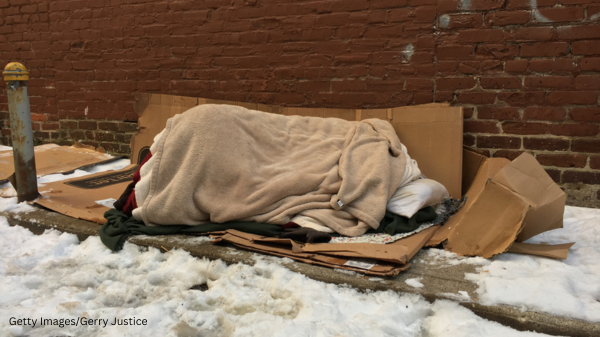Tired of stepping over needles and human waste, and navigating around half-conscious addicts and homeless encampments? You’re not alone. Most decent, hardworking people want clean sidewalks for getting to work and walking their kids to school.
But cities are legally barred from cleaning up homeless encampments. Advocates went to court and won rulings, guaranteeing homeless people almost unfettered freedom to set up tents and live in the rough, your health and safety be damned.
Here’s the good news. On Jan. 12, the United States Supreme Court announced that it will rule on a case challenging this new normal of squalor, disease and shouting schizophrenics invading our neighborhoods.
The town of Grants Pass, Oregon, about 250 miles south of Portland, Oregon, is challenging a 9th Circuit Court of Appeals ruling that goes back to 2018, shielding homeless people from any punishment for camping on public property. The 9th Circuit, known for its left-wing jurisprudence, says penalties for sleeping on public property amount to “cruel and unusual punishment.”
That ruling has directly tied the hands of city politicians in Phoenix, San Francisco, Los Angeles, Portland and other Western cities. It has also been cited by courts in the rest of the U.S. as a reason to tolerate homeless encampments. What the justices decide this spring will impact the entire U.S.
Advocates for homeless people say cities are unwilling to spend the money to take care of the indigent. Don’t fall for that. Across the nation, municipalities have been increasing shelter accommodations, but many homeless people flatly refuse to get off the streets.
They choose to sleep in the “rough” rather than put up with the rules and conditions in public shelters. A Portland survey showed that between May 2022 and July 2023, 75% turned down offers for shelter accommodations. In 2023 in San Francisco, 54% turned down offers, according to city data.
Homeless people deserve compassion, but allowing them to stay on the street, where they freeze to death on a sidewalk or succumb to disease, is not compassionate. They are, on average, reducing their own lifespan by three decades or more.
Nationwide, the proportion of homeless people choosing the streets over public shelters is steadily increasing. The Grants Pass litigants tell the Court that “time is of the essence.”
“The consequences of inaction are dire… crime, fires, the reemergence of medieval diseases, environmental harm, and record levels of drug overdoses and deaths on public streets.”
Even California Gov. Gavin Newsom is warning the justices that homeless encampments “are dangerous” and pose “immediate threats to health and safety.” Newsom may have political reasons for changing his tune, but his brief to the Court talks of “significant risks for disease transmission” and “property damage, theft, and break-ins” near the encampments.
SCOTUS will rule no later than June. Expect the justices to overturn the 9th Circuit’s loony decision and free municipalities to restore order and safety to their streets. But the court can’t command them to do it. Ultimately, it will depend on local officials to act on behalf of the quiet, law-abiding majority.
New York City Mayor Eric Adams recently boasted that he’s not allowing New York to descend to the likes of Skid Row in Los Angeles. Holding up a photo of L.A. and pointing to the filth, he exclaimed, “There are no toilets!” and asked, “Is this what you want your children to see?”
Adams, to his credit, has acted aggressively to involuntarily commit the mentally ill and get them off the streets. But don’t count on other NYC officials to act so sanely.
In June, a Homeless Bill of Rights, written by the far-left New York City Council, became law. It explicitly acknowledges a right to sleep outdoors. It pits Adams against the bill’s sponsor, New York City Public Advocate Jumaane Williams, who has an eye on Adams’ job and would temporarily succeed to it if Adams steps down for any reason.
Williams says that calling for shutting down encampments is “stoking fear.” Voters take note.
New Yorkers and voters everywhere need to elect leaders who will end the squalor.
Betsy McCaughey is a former lieutenant governor of New York and chairman of the Committee to Reduce Infection Deaths. Follow her on Twitter @Betsy_McCaughey. To find out more about Betsy McCaughey and read features by other Creators Syndicate writers and cartoonists, visit the Creators Syndicate website at www.creators.com.
COPYRIGHT 2024 CREATORS.COM
For more great content from Rights, Justice & Culture News.
For more from The Heartland Institute.






